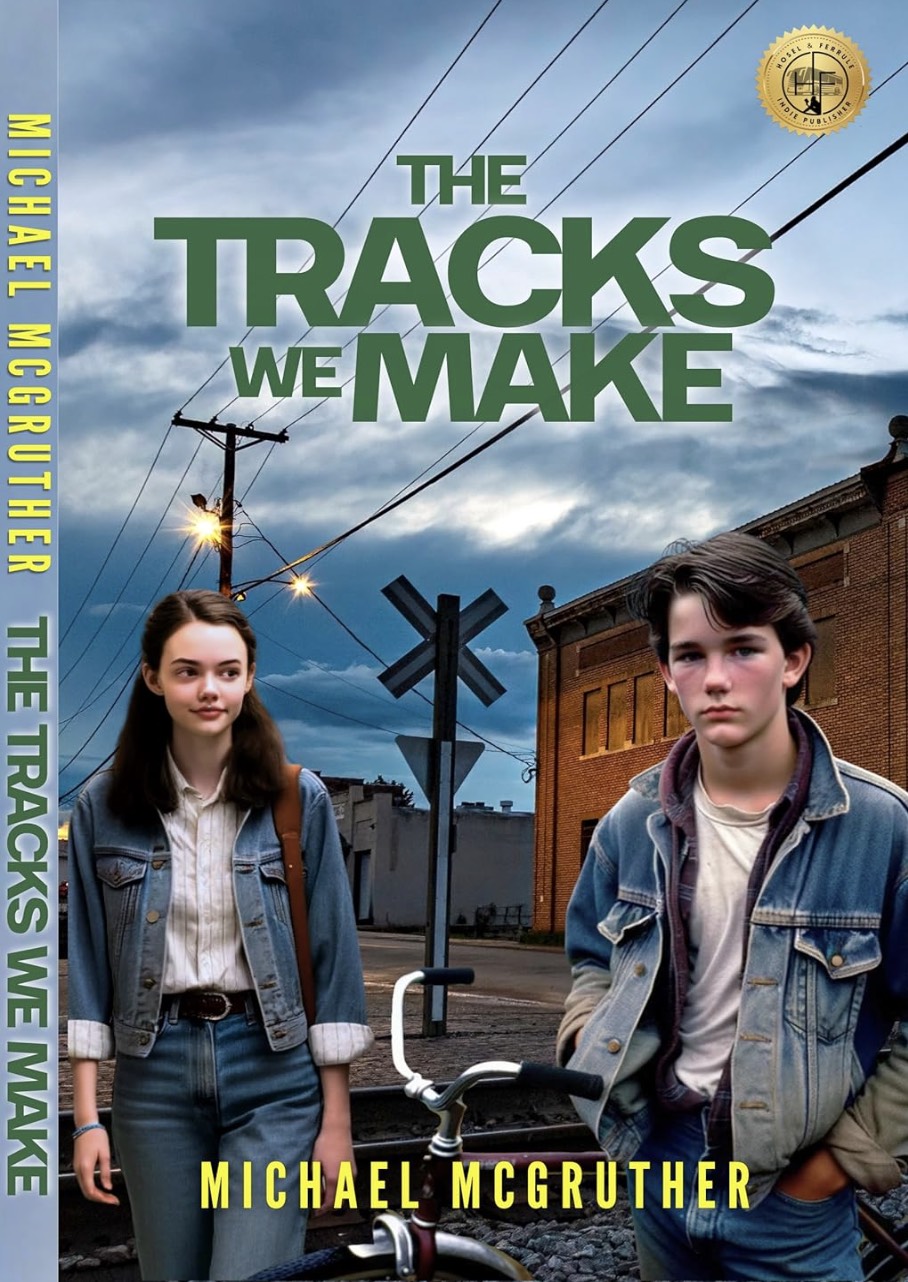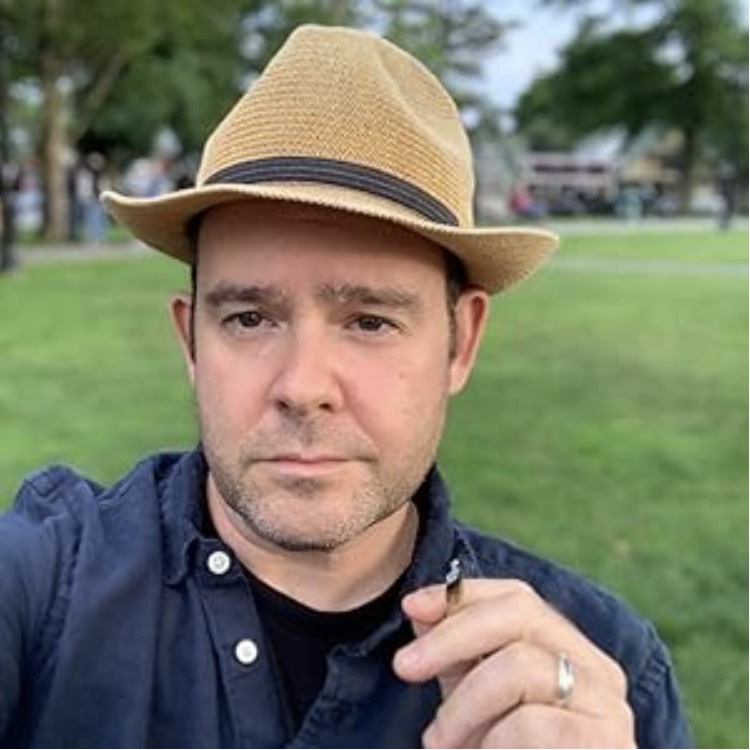Exclusive: Author Michael McGruther Spotlights ‘Forgotten’ Americans in Heartbreaking Rust Belt Tale ‘The Tracks We Make’
Author and screenwriter Michael McGruther, whose 2000 film Tigerland starring Colin Farell has become a cult hit in recent years, spotlights America’s “forgotten people” in his new book The Tracks We Make, a Rust Belt tale that offers equal parts heartbreak, sincerity, hope, wisdom, and nostalgia.
Now available on Amazon, The Tracks We Make tells the story of high school senior Pete McCloskey as he struggles to forge a path for himself in a dying rural New York town during the early 1990s — a time when the ugly effects of globalism and economic shifts began to emerge in neighborhoods that were once thriving hubs of middle-class prosperity. With a dad in prison and a mother on the lam, Pete’s very existence becomes a fight for survival, whether it’s hiding money from his alcoholic older brother (his only guardian), battling bullies at school, or just simply keeping his grades up in the hopes making it to graduation. The Tracks We Make weaves a powerful tale about the human spirit and hooks the reader from start to finish. A must-read in today’s cultural climate, rivaled only by Sen. J.D. Vance’s (R-OH) best-seller Hillbilly Elegy.
Speaking with Breitbart News in an exclusive interview, Michael McGruther explained how he pulled from his own personal history of growing up in a town like Snydersville to create the story at the heart of The Tracks We Make.
“Born in 1972, I witnessed firsthand the transformative and often disheartening effects of globalism on my hometown, a Western New York State community, that inspired the fictional Snydersville,” he said.
“In my youth, the town was a bustling hub of activity, embodying the quintessential American downtown spirit,” he continued. “However, as the years passed, particularly with the arrival of big-box stores like Walmart, I saw a gradual but irreversible decline. The once-thriving local businesses began to shutter, leaving behind a shell of what used to be a vibrant community center.”

Michael McGruther
Like Pete in the book, Michael recalled how the depressing reality of his hometown forced him to make a difficult choice: stay in the place he called home or flee to find better opportunities.
“I found myself grappling with the harsh reality that remaining in a town with dwindling prospects often meant succumbing to the vices that filled the void left by economic decline, like the prevalent bars in small towns. Alternatively, seeking a brighter future necessitated a painful decision – leaving the place I called home,” he said.
In setting out to write the book, which he adapted from a successful and beloved screenplay he authored in the late 1990s, Michael McGruther sought to shine a spotlight on America’s “forgotten people” in the hopes of giving them a voice in the culture, a call to “acknowledgment and empathy, urging a nation to look towards its neglected corners and the resilient souls fighting to reclaim their forgotten purpose.”
“The novel emerges as a single yet powerful voice among many that need recognition. It delves into the often-overlooked lives of ‘the forgotten people’ —a term politicians use, yet seldom address with genuine understanding,” he said. “This story illuminates their plight, shedding light on the harsh realities faced by those cast aside by the media and cultural narratives.”
McGruther asserted that giving a voice to America’s “forgotten people” should be a cause that people of all cultural stripes should invest in, allowing them to see how “systemic neglect has real and tragic consequences” with the rise of economic depressions and the “tragic losses that continue to plague these communities.”
“Their stories, their struggles, and their perspectives are often absent from the cultural mainstream, leading to a profound sense of alienation and invisibility,” he told Breitbart News.
“By integrating their narratives into the broader cultural fabric, we can begin to address this imbalance. Books like The Tracks We Make play a crucial role in this process,” he continued. “They don’t just tell a story; they offer a lens through which a wider audience can understand and empathize with the experiences of these often-ignored groups.”

Michael McGruther
McGruther expressed hope that media companies will take note that stories like The Tracks We Make have wide audience appeal so that the “forgotten people” can be a part of “redefining the cultural and political narrative.”
“The Tracks We Make is not just a story about the struggles of a forgotten town; it’s a narrative about finding direction in life’s journey, even when the way seems obscured,” said McGruther. “It’s a testament to the human spirit’s resilience and the enduring hope that, despite being overlooked by a nation continually looking elsewhere, there exists a path forward, a track leading towards a better tomorrow.”
“In its pages, you’ll find not just a tale of personal struggle and resilience, but a poignant narrative that resonates with the core of the American spirit,” he added. “It is a powerful reminder that in acknowledging and valuing each other’s stories, we pave the way for a more inclusive and understanding nation.”





Comments are closed.